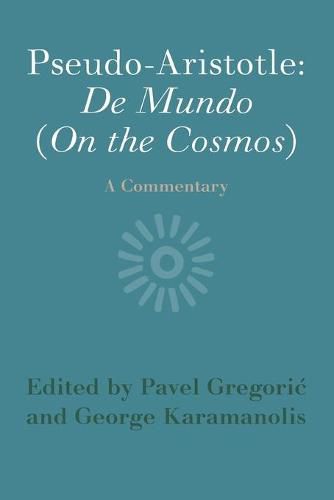Readings Newsletter
Become a Readings Member to make your shopping experience even easier.
Sign in or sign up for free!
You’re not far away from qualifying for FREE standard shipping within Australia
You’ve qualified for FREE standard shipping within Australia
The cart is loading…






De mundo is a protreptic to philosophy in the form of a letter to Alexander the Great and is traditionally ascribed to Aristotle. It offers a unique view of the cosmos, God and their relationship, which was inspired by Aristotle but written by a later author. The author provides an outline of cosmology, geography and meteorology, only to argue that a full understanding of the cosmos cannot be achieved without a proper grasp of God as its ultimate cause. To ensure such a grasp, the author provides a series of twelve carefully chosen interlocking analogies, building a complex picture in the reader’s mind. The work develops a distinctly Aristotelian picture of God and the cosmos while paying tribute to pre-Aristotelian philosophers and avoiding open criticism of rival schools of philosophy. De mundo exercised considerable influence in late antiquity and then in the Renaissance and Early Modern times.
$9.00 standard shipping within Australia
FREE standard shipping within Australia for orders over $100.00
Express & International shipping calculated at checkout
De mundo is a protreptic to philosophy in the form of a letter to Alexander the Great and is traditionally ascribed to Aristotle. It offers a unique view of the cosmos, God and their relationship, which was inspired by Aristotle but written by a later author. The author provides an outline of cosmology, geography and meteorology, only to argue that a full understanding of the cosmos cannot be achieved without a proper grasp of God as its ultimate cause. To ensure such a grasp, the author provides a series of twelve carefully chosen interlocking analogies, building a complex picture in the reader’s mind. The work develops a distinctly Aristotelian picture of God and the cosmos while paying tribute to pre-Aristotelian philosophers and avoiding open criticism of rival schools of philosophy. De mundo exercised considerable influence in late antiquity and then in the Renaissance and Early Modern times.